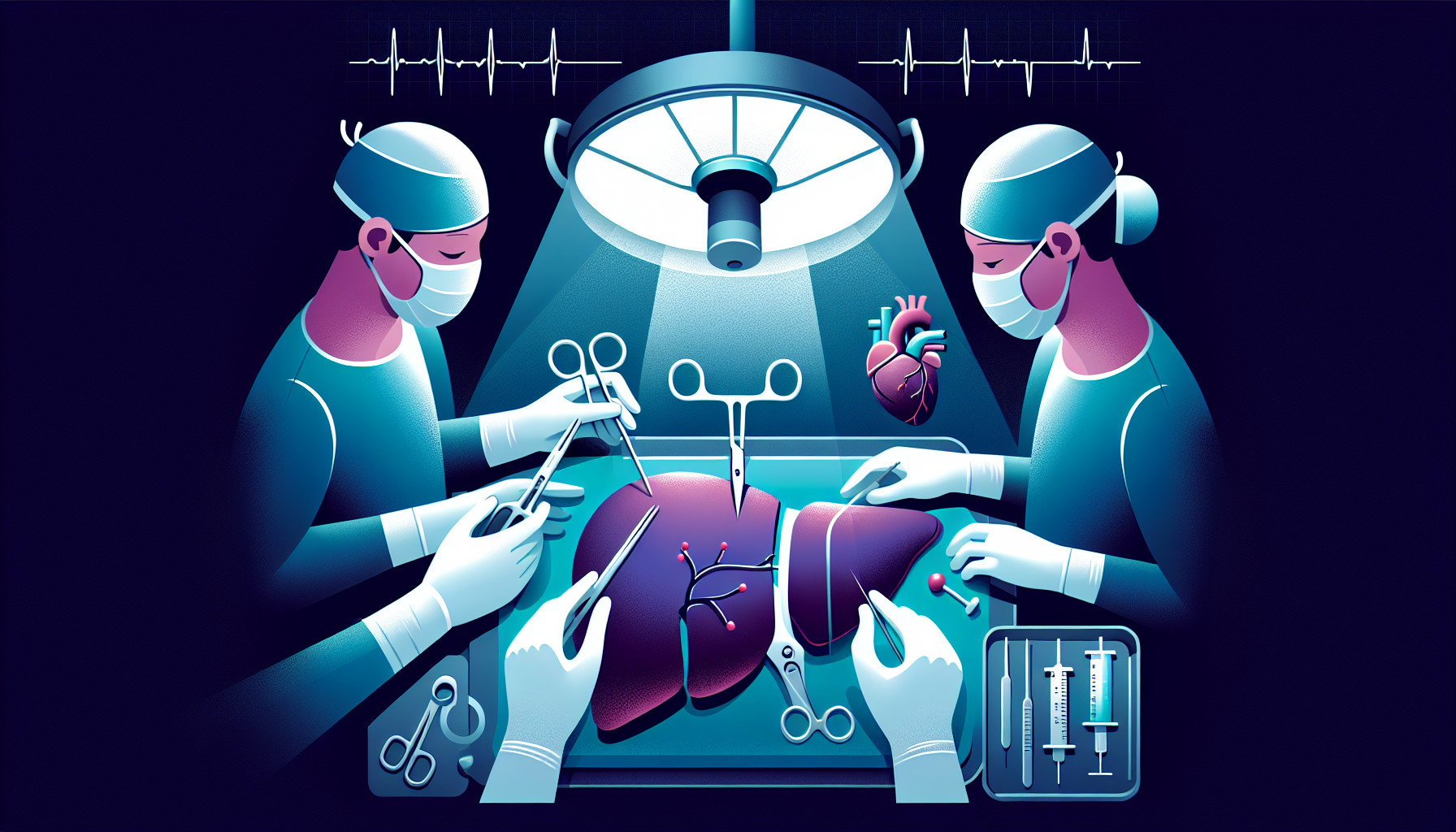Our Summary
This research paper discusses the success of liver transplantation as a treatment for severe liver disorders over the past 30 years. Because of this success, liver transplantation is now also being used as treatment for liver tumors and metabolic disorders. This has led to an increase in the number of patients needing this treatment. However, this increase also presents new challenges related to the specific diseases these patients have. With more people receiving liver transplants, new healthcare delivery systems are needed to accommodate this growing patient population. The paper also talks about recent updates and developments in the field of pediatric liver transplantation.
FAQs
- What has made liver transplantation the treatment of choice for many advanced liver disorders?
- What are some of the new indications for liver transplantation?
- How are health care delivery systems adapting to meet the needs of the increasing number of liver transplant recipients?
Doctor’s Tip
One helpful tip a doctor might tell a patient about liver transplant is to follow a strict medication regimen as prescribed by their healthcare provider to prevent rejection of the new liver. It is important to take all medications as directed and attend all follow-up appointments to ensure the success of the transplant. Additionally, maintaining a healthy lifestyle through a balanced diet and regular exercise can help support the new liver and overall health.
Suitable For
Patients who are typically recommended for liver transplant include those with end-stage liver disease, acute liver failure, liver tumors, metabolic disorders, and certain autoimmune liver diseases. These patients often have severe symptoms, complications, and poor prognosis without transplantation. Liver transplant is considered when other medical treatments have failed to improve the patient’s condition and quality of life. The decision to recommend a liver transplant is made by a multidisciplinary team of healthcare professionals, including hepatologists, transplant surgeons, transplant coordinators, and social workers, who assess the patient’s overall health, medical history, and likelihood of success with transplantation.
Timeline
Before liver transplant:
- Patient is diagnosed with a severe liver disorder, such as cirrhosis, liver cancer, or acute liver failure.
- Patient undergoes extensive evaluation by a multidisciplinary team to determine if they are a suitable candidate for liver transplantation.
- Patient is placed on the waiting list for a donor liver, which can take weeks to years depending on availability.
- Patient may experience worsening symptoms and complications of their liver disease, such as jaundice, ascites, and hepatic encephalopathy.
- Patient may require hospitalization and interventions to manage their symptoms and stabilize their condition while waiting for a transplant.
After liver transplant:
- Patient undergoes surgery to receive a donor liver, which can be a partial or whole organ transplant.
- Patient is closely monitored in the intensive care unit post-transplant for complications such as rejection, infection, and organ dysfunction.
- Patient undergoes a long period of recovery and rehabilitation, including physical therapy and medication management.
- Patient requires lifelong immunosuppressant medication to prevent rejection of the transplanted liver.
- Patient undergoes regular follow-up appointments and monitoring to assess the function of the transplanted liver and address any complications or issues that may arise.
What to Ask Your Doctor
- What are the potential risks and complications associated with liver transplantation?
- How long is the recovery process after a liver transplant?
- What is the success rate of liver transplantation for my specific condition?
- How will I be monitored and cared for after the transplant surgery?
- What lifestyle changes will I need to make after the transplant?
- Will I need to take immunosuppressant medications for the rest of my life?
- How often will I need to follow up with my transplant team after the surgery?
- What are the signs of rejection or complications that I should watch for after the transplant?
- Are there any dietary restrictions or special precautions I should take after the transplant?
- How long can I expect the transplanted liver to last?
Reference
Authors: Rawal N, Yazigi N. Journal: Pediatr Clin North Am. 2017 Jun;64(3):677-684. doi: 10.1016/j.pcl.2017.02.003. PMID: 28502445
